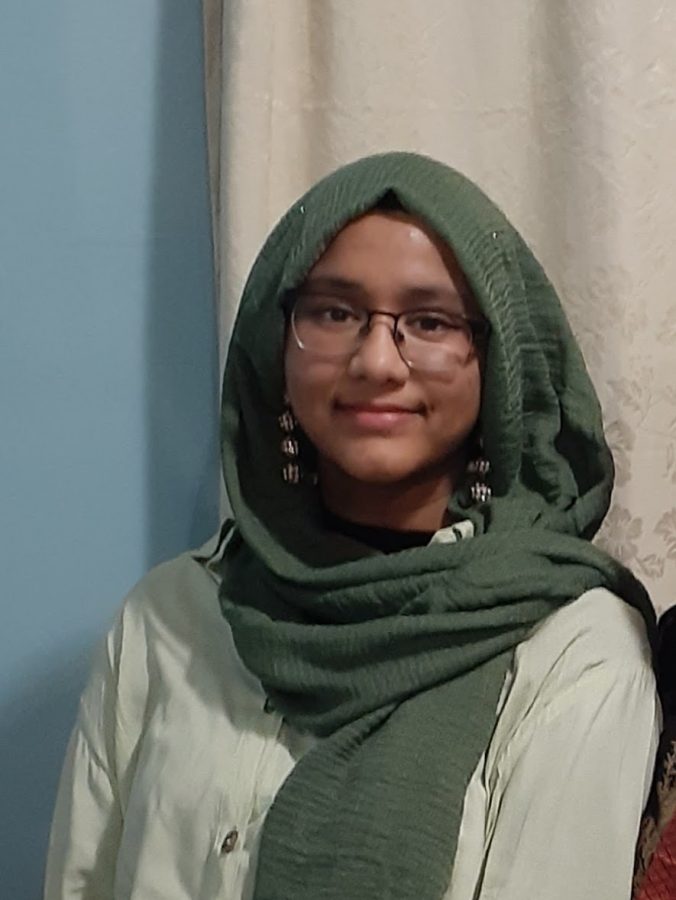The Role of the Media and the Problem of Islamophobia Around the World
Tanisha Khan ’22, the Events Coordinator of Bronx Sciences’ Muslim Student Association Club, said, “I think one of the reasons why some people have such a distorted view of Islam is because the media sees certain countries such as Saudi Arabia as a representation of Islam. Then, whenever these countries do something controversial, it automatically equates to Islam promoting such controversial things.”
The year 2020 started off with the continued Uyghur crisis in China and Shein, a fast fashion company, selling sacred Islamic prayer rugs as door mats. Now that we are in the beginning of 2021, Islamophobia around the world is still highly prevalent. The past year, like many other years after 9/11, has not been kind to Muslims across the world. Islamophobia is a serious problem that is ignored by many Americans. To give a sense of the problem, research from Pew Forum notes that almost half of Americans believe that some Muslims in the U.S. are Anti-American.
In October 2020, a middle school teacher in France showed his students cartoon pictures of Prophet Mohammed from the satirical French magazine Charlie Hebdo — and he was killed by an immigrant teenager a few days after that class, who was offended by the images. Emmanuel Macron, the President of France, commented that the teacher, “Samuel Paty was killed because Islamists want our future and because they know that with quiet heroes like him, they will never have it.”
This comment led to certain countries challenging President Macron with evidence of France’s previous Islamophobic issues, such as the Algerian-French 1992 election violence, a dispute over drilling rights in the Eastern Mediterranean, and the ban of wearing hijabs in France. In the same month, two Algerian Muslim women were stabbed near the Eiffel tower as tensions continued to rise.
Across the globe in 2020, Islamophobic incidents occurred to a similar extent. A month after the French attacks, Amani al-Khatahtbeh, a Muslim woman, was escorted out of an American Airlines plane after another passenger claimed he did not “feel comfortable” near her. She later tweeted “Y’all know if I, a VEILED MUSLIM WOMAN, had the audacity to throw a temper tantrum and run through TSA security, I would have gotten BODIED.” She added, “I would have been detained, missed my flight, possibly gotten charged, etc.”
Tanisha Khan ’22, a junior at Bronx Science, has had personal experiences with Islamophobia outside of school. As she notes, “the worst part is that afterwards it starts, to affect you mentally and emotionally. You start gaslighting yourself, telling yourself that it was no big deal and that it was just a few words. But it really hurts because that’s your whole identity. And then you start hating yourself for doubting your beliefs and it’s a perpetual cycle,” she says.
What is the media’s role in furthering the public’s opinions about Muslims?
According to a Pew Research Center survey, Americans view Jews, Catholics, Protestants, Christians, Buddhists, Hindus, and Mormons, all more warmly than Muslims. Another Pew survey study connected the general views of Republicans and Democrats towards Muslims, concluding that more Republicans than Democrats believe that Islam is, in comparison to other religions, more likely to encourage violence among its followers.
Another study conducted by researchers from the University of Alabama found that the constant negative portrayal of Muslims continues to lead the media to over-emphasize acts of terrorism by Muslims. Terrorist acts by Muslims receive 357% more news coverage than acts committed by any other group, according to the study.
The Media Portrayals of Minorities Project published a report in 2019 which analyzed the portrayals of minority groups in American mainstream newspaper databases. The research concluded that Muslims were by far the most negatively associated in the American press, especially in United States newspaper coverage. However, they also found that the negative association with Muslims had decreased over the previous five years, which is an encouraging sign.
Between April and June 2020, Germany reported 188 Islamophobic crimes including fifteen mosque attacks. Although investigations were open against suspects, there have been no arrests thus far. Although there are nearly 4.7 million Muslims currently living in Germany, the country has a long troubled history of discrimination against Turkish Muslims, specifically.
Interestingly enough,, the German-Turkish Muslim couple behind one of the leading COVID-19 vaccines under Pfizer has given not only the country of Germany, but the entire world, a sense of pride and hope during this otherwise difficult time of the Coronavirus pandemic.
Dr. Ugur Sahin and his wife, Dr. Özlem Türeci, founded BioNTech. Dr. Sahin and his team developed the COVID-19 vaccine with Pfizer that is currently being distributed, along with the Moderna vaccine (made by another company). The couple has received positive media coverage from prestigious newspapers such as The New York Times, The Washington Post, and The Wall Street Journal, with an emphasis placed on both their religion and nationality.
Through the reporting of uplifting stories such as that of Dr. Ugur Sahin and Dr. Özlem Türeci, recent American media coverage has become less negative in its depiction of Muslims. However, attacks against mosques and against Muslims remain a deeply concerning problem.
Through the reporting of uplifting stories such as that of Dr. Ugur Sahin and Dr. Özlem Türeci, recent American media coverage has become less negative in its depiction of Muslims.
Paromita Talukder is a Copy Chief for ‘The Science Survey’ where she explores topics ranging from online activism to clubs at Bronx Science. She sees...

